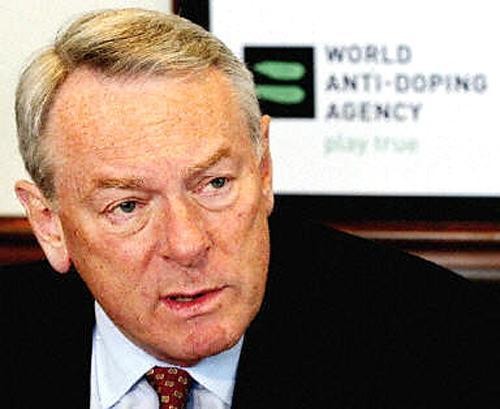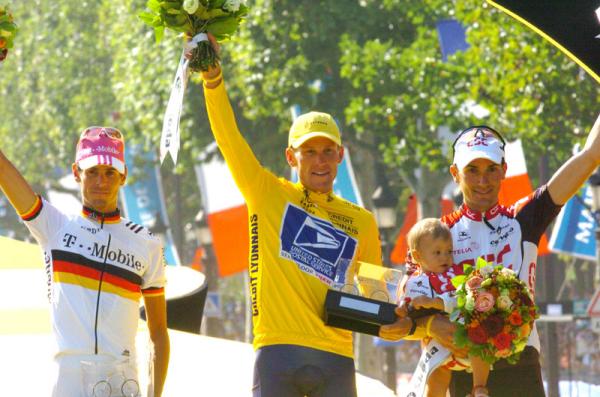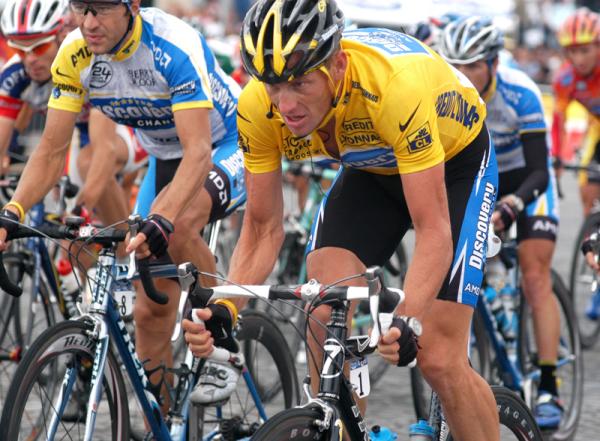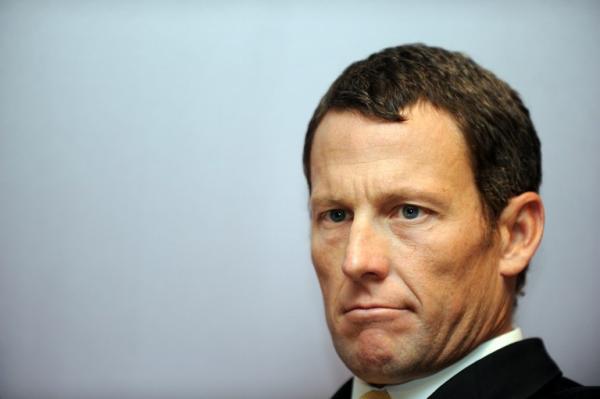Pound calls for 'truth and reconciliation' for cycling
Former WADA president calls Armstrong's tactics 'desperate'




The former president of the World Anti-Doping Agency Dick Pound today said USADA's lifetime ban of Lance Armstrong "is not a witch hunt, it's a duty", and called for the sport's governing body, the UCI, to engage in a "truth and reconciliation exercise" in order to rid the sport of doping and move forward.
USADA moved ahead last week with the lifetime ban and the disqualification of Armstrong's results dating back to August 1, 1998, a move which will strip him of all seven Tour de France titles, after a late appeal by Armstrong's legal team to block USADA's procedure was dismissed by a district court in Texas.
Pound, an attorney, former vice president of the International Olympic Committee and current IOC member for Canada, has been keeping a close eye on USADA's case against Armstrong and his attempts to block it from moving forward to arbitration where all the evidence would be heard in public.
"I thought frankly it was rather desperate," Pound said of the district court filing. "Any well informed lawyer would have been able to tell him it was not going to prevail."
Armstrong decided not to seek arbitration, he instead refused to acknowledge USADA's right to punish him for doping offenses and stepped away from the spotlight.
"It's not an untypical tactic. [Armstrong] was very careful about what he said. The fact of the matter is he fought tooth and nail to keep this from going to arbitration, and the court said 'no, sorry that's the route you have to go'. He [effectively] said, 'well, in that case I'm not going to fight anymore'. All of a sudden he turns from the world's toughest fighter to not even contesting it? Decide what you like."
Pound says that the process is not over, that the evidence, or at least some of it, will come out.
Get The Leadout Newsletter
The latest race content, interviews, features, reviews and expert buying guides, direct to your inbox!
"It's like if someone sues you for money you owe them, and you don't file a defence. That doesn't mean that the process stops. The person you owe money to can carry on and get a judgement by default, and that's what's going to happen here. USADA, don't forget, is not going to want to look like it's been mean or petty and it has trumped up any evidence - notwithstanding all the purple prose Lance and his team gave us. They're going to show this was a very careful, deliberate process in which they investigated, got evidence, weighed the evidence, and decided whether or not they had enough to make it stick, even though some of it goes back a long time.
"All of those elements will go in, I assume the final report will make all that clear. Personally, as a lawyer, I think the public at large would be more satisfied if there was the full blown process where Armstrong could make his case, and if the arbitrators believed him he would win and that would be the end of it. But he's chosen not to do that."
Political implications?
Pound has a history of being outspoken on the problems of doping in cycling. He came into the position with the newly formed agency the year after the Festina scandal rocked the sport, and during the year of Armstrong's first Tour victory in 1999. There is no shortage of quotes from the next eight years in which he is critical of the UCI's efforts, or lack thereof, to combat the problem.
The UCI even filed a lawsuit against Pound for defamation after his tenure, the statements were so strong, but the case ended in an agreement after it was decided that Pound was tasked with pointing out flaws in the anti-doping programs of federations, even if he might have been a bit vehement in his public criticism.
WADA came under fire again in recent weeks, with the current president, Pat McQuaid accusing the agency of having a "political campaign against cycling".
"Both McQuaid and [former UCI president Hein] Verbruggen have made some very unfortunate statements along those lines," Pound told Cyclingnews. "The fact is that their sport has been inundated with doping for years. It's part of the culture and practically part of the DNA.
"I think what they have to do at some point, it may be so bad, they're going to have to do a truth and reconciliation exercise and say 'let's get it all on the table so everyone knows how bad it was and let's now turn the corner and if anybody from now on is using any of these things they're out, period'. Until that happens and they acknowledge there has been a problem and the problem continues, there's almost no hope for a cure."
Should the reports that Armstrong was warned of impending doping controls and had positive tests covered up by the sport's governing body prove to be true, Pound says that, "If there is substance to the speculation it could have a serious impact on the sport and its credibility".
"The IOC is firm on its zero tolerance policy [for doping]. It may very well say this is not good for the Olympic movement to have this kind of situation. Maybe it will be one of the sports that will be removed [from the Olympic programme]. I sincerely hope not, it's such an exciting sport I would rather see it be cleaned up and remain on the program than suspended. That's for the IOC to decide.
Told you so?
Pound was in charge of WADA in 2005 when Damien Ressiot, a reporter from the French newspaper L'Equipe, managed to get a hold of both the research results of an EPO test study which used samples from the 1999 Tour de France and the anti-doping control forms from the race, and in doing so matched up the control numbers of six EPO positives to forms signed by Lance Armstrong.
When he suggested Armstrong might have to answer to the results, Pound experienced first hand the onslaught of anger hurled at anyone who dare try to taint Armstrong's legacy.
"I had said, listen, I don't know, but if the forms were Lance's and the sample numbers are right, you might have a case to answer. That's all I said. That led to screaming and yelling about what a dreadful person I was and I should be kicked out of the IOC."
The UCI buried the case under an "independent report" which concluded that there was not enough evidence to prove that Armstrong used EPO. That was not good enough for Pound, who continued to call for action from the UCI until his term as president expired in 2007.
All through his eight-year term as WADA's first president, Pound insisted that dopers were adapting quicker than the testers, and only a small percentage of the cheaters were being caught - it's a view he maintains to this day.
"Here we are a few years later, Landis imploded in front of everyone's eyes - from the great hero to someone who clearly cheated and clearly lied about it, and spent a lot of other people's money on a useless defence - a double defence, he went to USADA and to CAS, to the point he's going to have to raise money to pay back the people who supported his defence fund.
"Marion Jones could look you in the eyes and say I've never taken anything, and repeat that on cue until her time came up, and yes, she had taken it all along. It's a shame, but it's the way it worked out.
"It's across all sports, swimming, rowing, track and field, cycling. I don't think there's any sport that's immune."
As for Armstrong's fans, Pound said, "A lot of people bought into the image and to see that crumbling away over the last two or three years, and now smashed into pieces, it's unsettling [for them]. They feel badly for him, about him and about themselves for having bought it."

Laura Weislo has been with Cyclingnews since 2006 after making a switch from a career in science. As Managing Editor, she coordinates coverage for North American events and global news. As former elite-level road racer who dabbled in cyclo-cross and track, Laura has a passion for all three disciplines. When not working she likes to go camping and explore lesser traveled roads, paths and gravel tracks. Laura specialises in covering doping, anti-doping, UCI governance and performing data analysis.